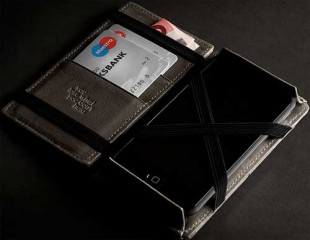 1. Wallet
1. Wallet
Your wallet should contain your ID, a card with emergency contact numbers (phones can die and it gives EMS workers someone to call on your behalf), and medical insurance card. If you are unconscious or otherwise unable to respond in an intelligible manner, first responders will look for a wallet to determine who you are, and if there are any medical alerts they should be aware of.
they should be aware of.
2. Cash
I am listing cash out from wallet separately because it is so important. You should keep a cache of cash
out from wallet separately because it is so important. You should keep a cache of cash on you that is not in your wallet. In most cases, $20 can get you a cab ride to safety when stranded, buy you two to three meals, or bribe a reluctant stranger to help you.
on you that is not in your wallet. In most cases, $20 can get you a cab ride to safety when stranded, buy you two to three meals, or bribe a reluctant stranger to help you.
During the North East Blackout of 2003, residents were reminded of how cash is always king. With no power, vendors were unable to take credit cards. I have heard great stories about people being in New York during the blackout, buying a beer with cash, sitting on the curb, and watching everyone try to figure out what to do without cash in a blackout.
is always king. With no power, vendors were unable to take credit cards. I have heard great stories about people being in New York during the blackout, buying a beer with cash, sitting on the curb, and watching everyone try to figure out what to do without cash in a blackout.
Emergency cash does not mean emergency beer money. Pretend it is not there; it’s for real emergencies.
3. Phone
You may not think of it as a survival item, but a phone – especially today’s smart phones – can be a very important survival tool. With a web-connected phone you can call for help, look up first aid and CPR information, and light your way.
Three interesting notes you may not know about your cell phone. First, 911 works even if a cell phone has no active calling plan. Second, many US cities are installing a system allowing them to send emergency text messages to residents of an area. The system can even be targeted to people in the immediate area of a specific cell tower covering a specific geographic area. Finally, when cell phone networks are jammed up, SMS messages will still likely get through. They may not be instant, but they will get delivered within up to a couple of hours typically.
a system allowing them to send emergency text messages to residents of an area. The system can even be targeted to people in the immediate area of a specific cell tower covering a specific geographic area. Finally, when cell phone networks are jammed up, SMS messages will still likely get through. They may not be instant, but they will get delivered within up to a couple of hours typically.
Two things you may not know about landlines. 911, like cell phones, works even if the phone has been disconnected (not if the line is actually out). Second, when landline networks are jammed up, long distance calls can often still get through. Have a friend out of state, that you and your family can check in with and act as your communications hub.
4. Unconventional Weapon
Anything is a weapon if you know how to use it. By weapon, I don’t just mean a legal knife or gun. Carry something with you every day that you know how to use as a weapon that would not normally be considered a weapon by itself.
I am partial to pens. The completely innocuous pen can write a “help me” note, get a target’s number, or be jammed into a number of places on the human body, immediately taking the fight out of an attacker – or at least make them think twice. Even a bottle of water can make an excellent weapon if you know how to use it.
5. Mindset
The mindset you walk out the door with every day is your single more important survival tool. Mindset does not mean that you walk around in fear. As Mark Twain put it, “Courage is resistance to fear, mastery of fear, not absence of fear.”
Your Survival Mindset is about staying aware: be mindful of other drivers as you go to and from work (most accidents are caused by drivers not paying attention). When entering your home, hang up the cell phone and keep a keen eye out for anything out of the ordinary. Feel the door knob as you insert the key (is the door unlocked?). Rapists, Serial Killers, and Muggers share a common trait; they look for the low hanging fruit. They look for people that are not paying attention and walking without confidence. If your gut tells you something does not feel right, go with it. You can always catch the next elevator that does not have that creepy person.
keep a keen eye out for anything out of the ordinary. Feel the door knob as you insert the key (is the door unlocked?). Rapists, Serial Killers, and Muggers share a common trait; they look for the low hanging fruit. They look for people that are not paying attention and walking without confidence. If your gut tells you something does not feel right, go with it. You can always catch the next elevator that does not have that creepy person.
What do you never leave the house without?
*
Related Stories from The Inner Circle
Prepping an EIP
How to Build a Blackout Kit
CERT: Emergency Response Training For The Masses
